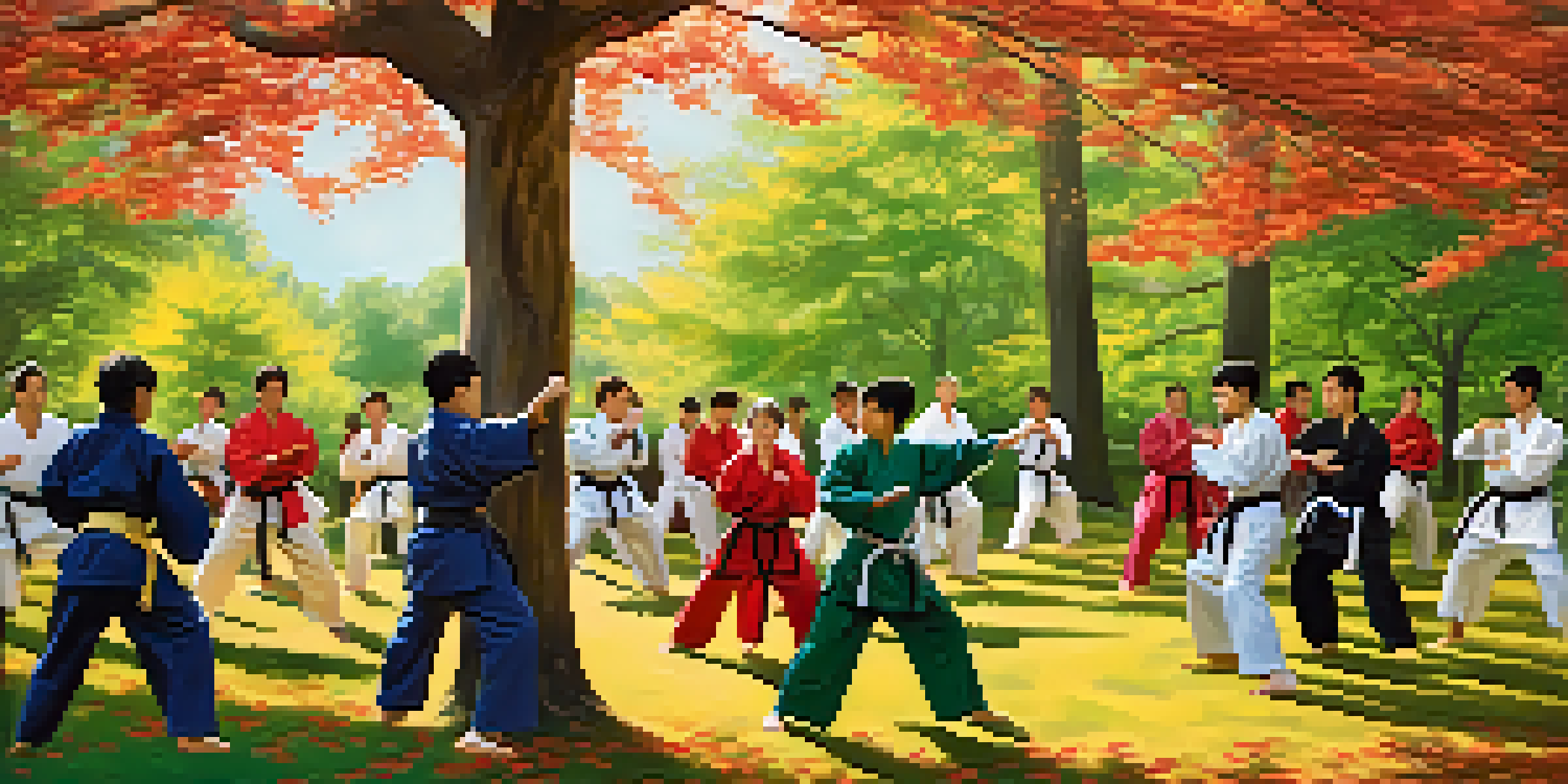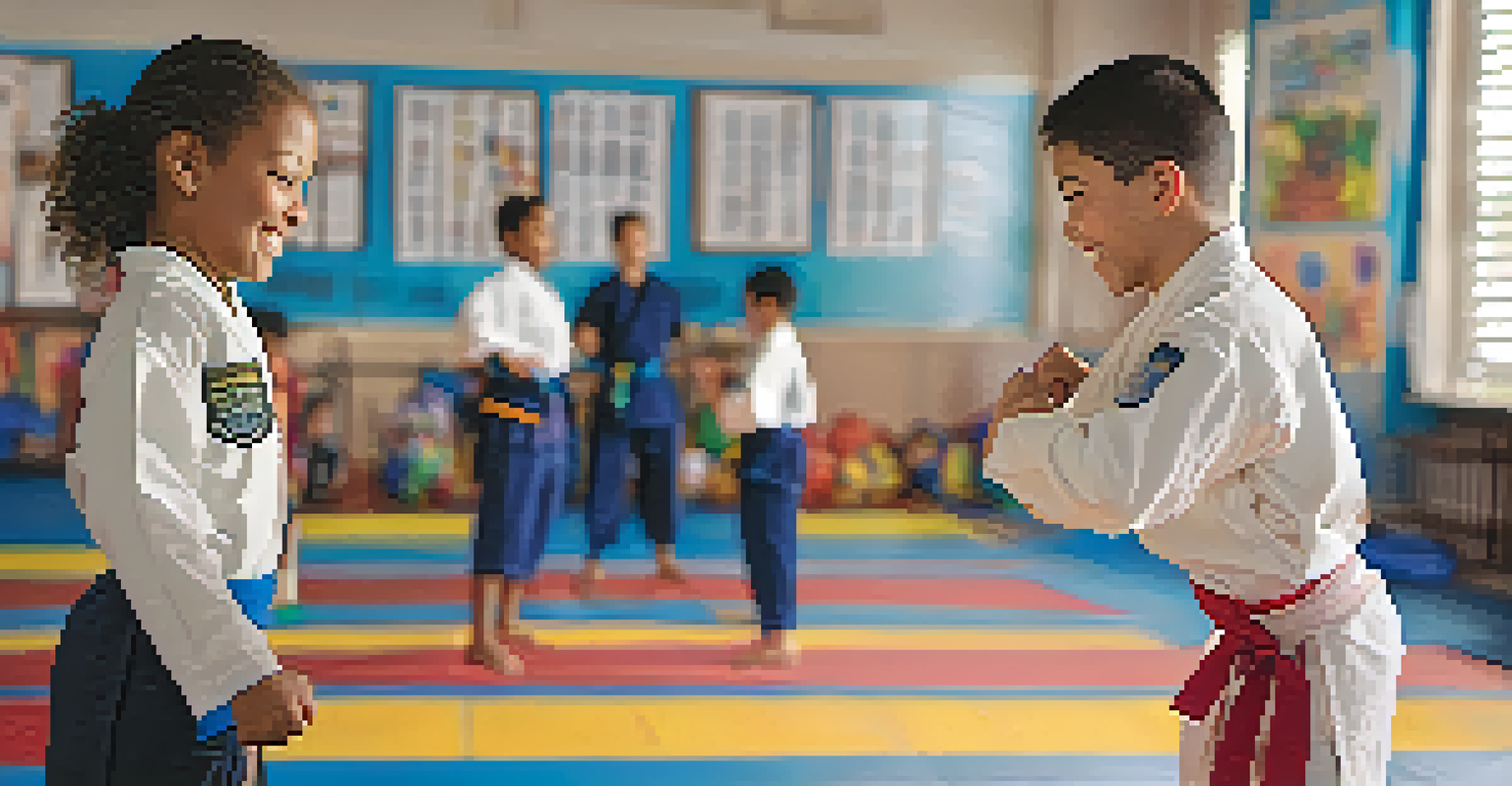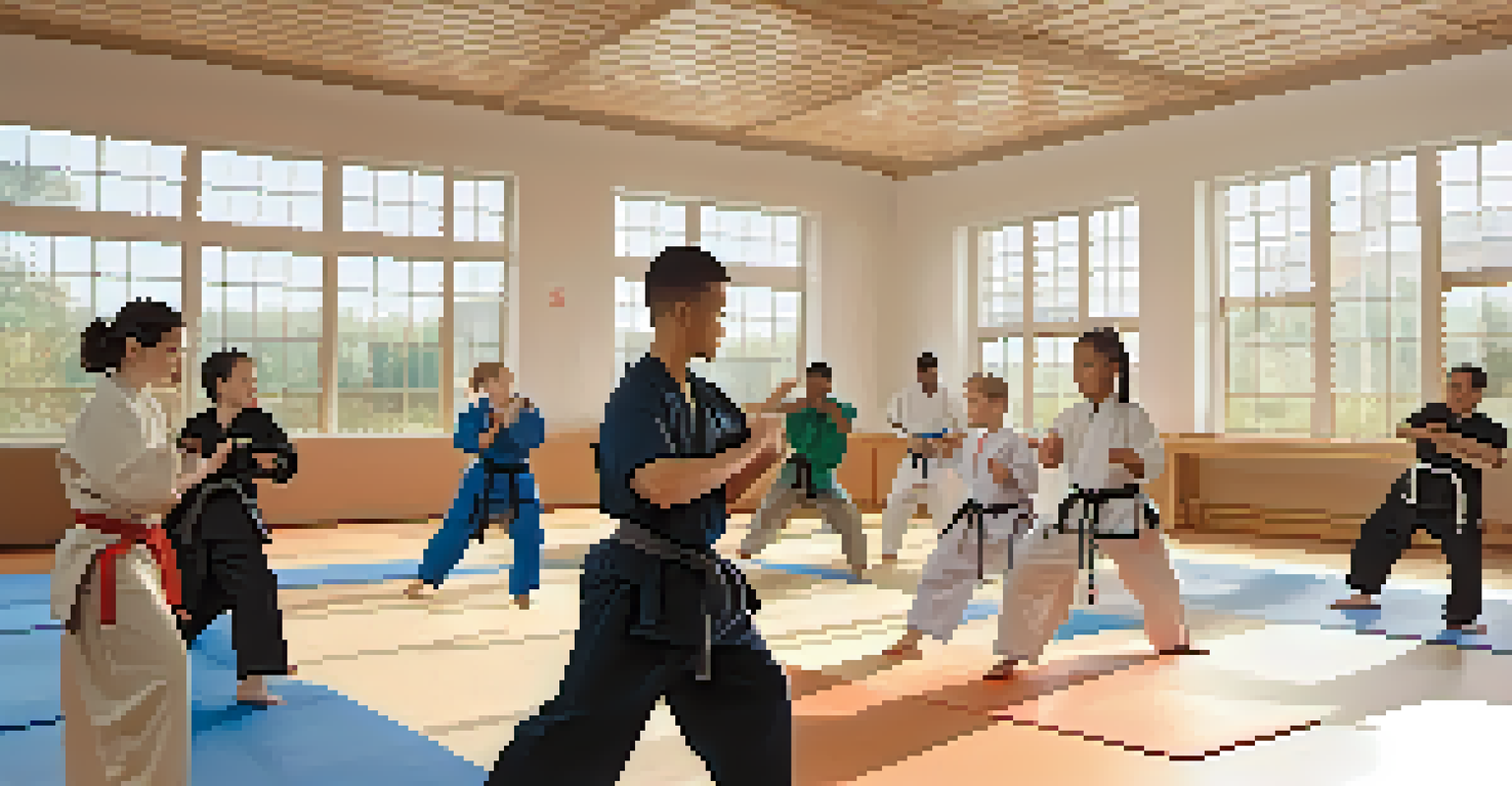Community Engagement through Martial Arts in Policing

The Importance of Community Engagement in Policing
Community engagement is vital for effective policing, as it fosters trust and cooperation between law enforcement and citizens. When police officers actively engage with the community, they can better understand local issues, concerns, and needs. This open communication helps dismantle barriers that often exist between officers and residents, leading to a safer environment for everyone.
The police cannot be effective in their job without the support of the community they serve.
Moreover, strong community ties can lead to increased crime prevention and improved public safety. When people feel connected to their community and the officers who serve them, they are more likely to report suspicious activity and cooperate with law enforcement efforts. This collaboration creates a sense of shared responsibility in maintaining order and addressing crime.
Martial arts can serve as a unique avenue for fostering these connections, offering a platform for positive interaction. By engaging in martial arts programs, police officers can build rapport with community members while promoting physical fitness and self-defense skills.
Martial Arts as a Tool for Building Trust
Incorporating martial arts into community engagement initiatives can be a game-changer for police departments. These programs provide a non-threatening environment where officers and community members can interact in a relaxed setting. As they train together, they can break down stereotypes and build mutual respect, which is essential for effective law enforcement.

Additionally, martial arts emphasize discipline, respect, and self-control—values that align closely with the goals of community policing. When officers embody these principles in their interactions, they convey a message of integrity and commitment to serving the community. This can help shift perceptions of law enforcement from authority figures to supportive allies.
Community Trust Through Engagement
Effective policing relies on building trust and cooperation between law enforcement and community members.
Furthermore, as participants learn martial arts techniques, they gain confidence and self-esteem. This empowerment can lead to stronger community bonds, as individuals feel more capable of contributing positively to their neighborhoods.
Creating Inclusive Martial Arts Programs
To maximize the benefits of martial arts in policing, programs need to be inclusive and accessible to all community members. This means offering classes for various age groups, skill levels, and backgrounds, ensuring that everyone feels welcome and valued. When programs cater to the diverse needs of the community, they foster a sense of belonging and promote participation.
Martial arts is not about the physical act of fighting, but about building relationships and understanding one another.
Local police departments can partner with experienced martial arts instructors to design curriculum that emphasizes self-defense, conflict resolution, and physical fitness. By creating a supportive learning environment, officers can encourage individuals to step outside their comfort zones and engage with one another.
Moreover, outreach efforts can help attract participants who may not typically engage with law enforcement. By hosting free community events and demonstrations, police can showcase the benefits of martial arts while inviting dialogue and interaction.
The Role of Youth in Community Engagement
Youth engagement is a critical aspect of community policing, and martial arts can play an important role in connecting young people with law enforcement. By providing structured activities that promote teamwork and discipline, martial arts programs can divert youth from negative influences and encourage positive relationships with police officers. This proactive approach can help prevent delinquency and foster a sense of community pride.
Additionally, martial arts can teach valuable life skills, such as respect, perseverance, and conflict resolution. These skills can empower young individuals to make better choices and act as positive role models within their communities. As they develop these traits, they are more likely to view police officers as mentors rather than adversaries.
Martial Arts Build Positive Bonds
Incorporating martial arts into community programs fosters mutual respect and enhances relationships between police and residents.
Engaging youth through martial arts also opens up opportunities for mentorship and guidance. Officers can serve as role models, providing support and encouragement that can have a lasting impact on young people's lives.
Building Long-Lasting Partnerships
Effective community engagement through martial arts requires building lasting partnerships between police departments and local organizations. Collaborating with schools, youth centers, and community groups can extend the reach of martial arts programs and enhance their impact. These partnerships can provide additional resources and support, ensuring that programs remain sustainable and successful.
Moreover, involving local businesses and stakeholders can create a sense of ownership within the community. When residents see their local establishments supporting martial arts initiatives, they are more likely to participate and invest in the success of these programs. This collective effort reinforces the idea that community safety is a shared responsibility.
By prioritizing collaboration, police departments can establish trust and credibility within the community. This trust is essential for open dialogue and effective problem-solving, ultimately leading to a more harmonious relationship between law enforcement and residents.
Measuring Success in Community Engagement
To understand the effectiveness of martial arts programs in community policing, it's essential to measure success through various metrics. This can include participant feedback, crime statistics, and community perceptions of law enforcement. By analyzing this data, police departments can assess the impact of their initiatives and make necessary adjustments.
Surveys and interviews with participants can provide valuable insights into how martial arts programs influence relationships between officers and community members. Understanding participants' experiences can highlight areas of improvement and help tailor future offerings to better meet community needs.
Inclusive Programs Foster Participation
Creating accessible martial arts programs encourages community involvement and strengthens ties among diverse groups.
Additionally, tracking crime rates and community safety perceptions over time can help demonstrate the long-term benefits of these programs. When communities witness tangible improvements, it reinforces the importance of ongoing engagement and collaboration with law enforcement.
The Future of Martial Arts in Policing
As society continues to evolve, so too must the strategies used in policing. Embracing innovative approaches, such as martial arts programs, can enhance community engagement and foster stronger relationships between law enforcement and residents. By prioritizing collaboration and inclusivity, police departments can create a safer and more supportive environment for everyone.
Looking ahead, it will be crucial for police departments to continue adapting and expanding their martial arts initiatives. This might involve incorporating new techniques, exploring different styles, or collaborating with various organizations to reach a broader audience. The goal should always be to meet the unique needs of the community and promote a culture of respect and understanding.

Ultimately, the integration of martial arts into community policing reflects a commitment to holistic approaches that prioritize the well-being of all citizens. By investing in these programs, police can pave the way for a more connected and resilient community.